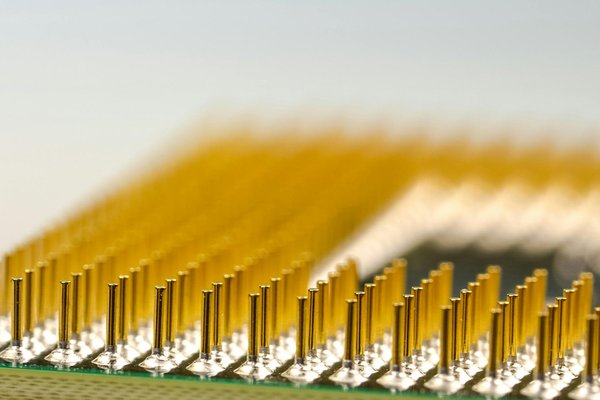UK Computing Hardware: Pioneering Innovations for 5G Deployment
Recent advances in UK computing hardware have been instrumental in accelerating 5G deployment across the region. British technology firms and research institutions have focused on creating hardware solutions optimized for the demanding speed, latency, and connectivity requirements of 5G networks.
One key aspect of hardware innovation in the UK lies in the development of ultra-efficient processors and semiconductor designs tailored specifically to handle 5G’s signal processing and data transmission needs. These components often integrate specialized architectures that reduce energy consumption while increasing throughput. British technology research emphasizes modular and scalable designs, enabling quick adaptation to evolving 5G standards and applications.
Leading UK universities and tech companies have introduced innovations such as advanced antenna arrays and high-frequency RF chips that excel in urban and rural environments alike. The unique architectural advantages of UK-manufactured hardware include enhanced security features and compatibility with IoT devices, ensuring a seamless ecosystem for diverse 5G use cases.
These innovations underscore the UK’s commitment to leading the global 5G revolution through groundbreaking hardware that supports faster, more reliable, and energy-efficient networks. The synergy between UK computing hardware expertise and 5G technology continues to set a benchmark for the future of telecommunications.
Leading UK Organisations Shaping 5G Technology
Exploring pivotal contributors driving 5G innovation across the UK
The landscape of UK tech companies actively pioneering 5G research projects reveals a vibrant ecosystem advancing British innovation. Major industry leaders, alongside agile start-ups, are developing core 5G hardware components like antennas and base stations, positioning the UK at the forefront of network technology.
In addition to individual companies, institutional partnerships play a critical role. Collaborations between universities, private sector firms, and government agencies amplify research capabilities and resource sharing. These alliances accelerate breakthroughs by combining academic expertise with commercial application demands, fostering a dynamic environment for 5G development.
A notable example involves multi-sector consortia focused on next-generation network architecture, exemplifying UK-driven cross-sector collaboration. These projects often target low-latency applications and smart city infrastructure, showcasing how British innovation translates into practical, scalable technologies.
Such coordinated efforts underline the UK’s commitment to shaping the global 5G landscape. A strategic blend of industry leaders and research institutions is vital for sustaining momentum and ensuring British tech companies continue to influence and lead in this evolving field.
Hardware-Driven Enhancements to 5G Network Infrastructure
Advancing connectivity through innovation
The 5G network infrastructure greatly depends on advanced hardware support, which directly influences performance improvements such as speed, capacity, and reliability. British computing components have been instrumental in this domain, providing robust processing units that enhance data throughput and enable faster network responses critical for real-time applications.
A key benefit of these components is their role in supporting ultra-reliable low-latency communications (URLLC). British hardware engineering ensures minimal delay and high stability, vital for applications like autonomous vehicle communication and remote surgeries. These components achieve this by optimizing signal processing and incorporating cutting-edge chipsets designed specifically for low-latency requirements.
Scalability and power efficiency are also addressed via innovative hardware solutions. Efficient power management systems developed within the UK reduce energy consumption while maintaining performance, crucial for the expanding deployments of national 5G networks. Moreover, modular hardware designs facilitate easy upgrades, helping providers swiftly adapt to increasing user demands without sacrificing network quality. Such hardware-driven advancements solidify the backbone of the 5G network infrastructure, ensuring sustained performance improvements essential for future technology integration.
Economic and Technological Impact of UK Hardware on the Global 5G Ecosystem
The economic impact of UK technology exports within the global 5G ecosystem is increasingly significant. UK-made 5G hardware solutions contribute substantial value to international markets, underpinning a growing export potential. These exports not only generate revenue but also bolster the UK’s position as a key player in global telecommunications.
The global 5G ecosystem benefits from advanced UK hardware innovations, which include cutting-edge components and systems vital for network infrastructure. This technological prowess enables the UK to influence standards and operational paradigms internationally. Consequently, the UK’s digital economy gains strategic significance, enhancing international competitiveness and reinforcing its status as a technology frontrunner.
Looking ahead, future trends point towards the UK making pivotal contributions to next-generation 5G advancements and beyond. Emerging technologies such as network slicing, AI integration, and enhanced MIMO antennas are areas where UK hardware is set to innovate. These developments promise to expand the country’s influence on the evolving global 5G landscape, ensuring sustained export growth and technological leadership.
